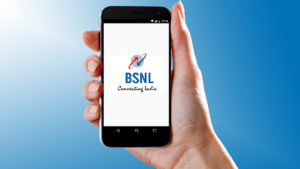
Evaluating Candidates for Management Roles: Tips
Hiring the right people for management roles is crucial for the success of any organization. After all, managers play a pivotal role in driving team performance, fostering a positive work environment, and achieving business objectives. But finding the perfect fit for these positions can be challenging amidst a sea of resumes and interviews.
That’s where management tests, personality assessments, and cognitive tests come into play. These tools offer valuable insights beyond what traditional interviews can reveal, helping employers make informed decisions about candidate suitability for management positions.
In this blog, we’ll dive into the world of evaluating candidates for management roles, exploring the tips and strategies to effectively utilize management tests, personality assessments, and cognitive tests in your hiring process. Whether you’re a seasoned HR professional or a small business owner looking to expand your team, understanding these assessment methods can empower you to make better hiring decisions and build a strong, capable management team. So let’s get started!
Understanding the Role of Management Tests
The management test serves as an invaluable tool in evaluating candidates’ suitability for managerial positions. Unlike traditional interviews that may only scratch the surface of a candidate’s capabilities, management tests delve deeper into specific skills and competencies essential for effective leadership.
These tests are designed to assess various aspects of managerial prowess, including communication skills, decision-making abilities, conflict resolution strategies, and strategic thinking. By presenting candidates with scenarios and challenges commonly encountered in managerial roles, these tests provide a glimpse into how they might perform in real-world situations.
One of the key advantages of management tests is their ability to standardize the evaluation process. Rather than relying solely on subjective opinions or gut instincts, employers can use these tests to objectively measure candidates’ skills and competencies against predetermined criteria.
Moreover, management tests offer a fair and consistent means of comparison among candidates. Whether you’re evaluating internal candidates for promotion or screening external applicants, these tests provide a level playing field where everyone is assessed based on the same criteria.
The Importance of Personality Assessment in Management Hiring
The personality assessment plays a crucial role in the management hiring process by providing insights into candidates’ behavioral traits and interpersonal dynamics. While technical skills are undoubtedly important for managerial roles, it’s often the soft skills and personality attributes that determine a manager’s effectiveness in leading and inspiring their team.
These assessments help employers understand how candidates are likely to interact with colleagues, handle conflicts, and communicate with stakeholders. By identifying personality traits such as empathy, resilience, and adaptability, employers can gauge a candidate’s fit for specific management roles and organizational cultures.
Moreover, personality assessments contribute to building diverse and well-balanced management teams. By recognizing the unique strengths and perspectives that each candidate brings to the table, employers can foster a culture of inclusion and innovation within their organization.
Incorporating personality assessments into the hiring process also helps reduce turnover rates and improve employee satisfaction. By selecting candidates whose personalities align with the demands of the role and the dynamics of the team, employers can mitigate potential conflicts and create a more harmonious work environment.
Leveraging Cognitive Tests for Evaluating Management Candidates
Cognitive tests are powerful tools for assessing the critical thinking abilities and problem-solving skills of management candidates. In today’s fast-paced business environment, managers need to make sound decisions quickly and adapt to changing circumstances effectively. Cognitive tests help employers gauge a candidate’s capacity for analyzing complex situations, synthesizing information, and making strategic decisions under pressure.
These tests often include various question formats, such as logical reasoning, numerical reasoning, and abstract reasoning, to assess different facets of cognitive ability. By presenting candidates with challenging scenarios and tasks, cognitive tests provide employers with valuable insights into their analytical aptitude and decision-making capabilities.
Moreover, cognitive tests offer a standardized means of evaluation, allowing employers to objectively compare candidates’ performance based on predetermined criteria. This helps ensure fairness and consistency in the hiring process, regardless of candidates’ backgrounds or experiences.
Best Practices for Incorporating Assessment Methods
Integrating management tests, personality assessments, and cognitive tests into the hiring process requires careful planning and execution. To maximize the effectiveness of these assessment methods, consider the following best practices:
- Alignment with Role Requirements: Tailor your assessment methods to align with the specific requirements of the management role. Identify the key skills, competencies, and traits essential for success in the position and design your assessments accordingly.
- Combining Assessment Methods: Use a combination of management tests, personality assessments, and cognitive tests to gain a comprehensive understanding of candidates’ suitability for the role. Each assessment method provides unique insights that, when combined, paint a holistic picture of a candidate’s capabilities.
- Standardization of Evaluation: Ensure consistency and fairness in the evaluation process by standardizing assessment procedures and criteria. Establish clear scoring rubrics and guidelines for interpreting assessment results to minimize bias and promote objectivity.
- Training for Assessors: Provide training to hiring managers and assessors on how to administer and interpret assessment tools effectively. Equipping them with the necessary skills and knowledge ensures accurate evaluation and enhances the reliability of assessment outcomes.
- Feedback and Transparency: Offer feedback to candidates on their assessment results to foster transparency and trust in the hiring process. Providing constructive feedback not only helps candidates understand their strengths and areas for improvement but also reflects positively on your organization’s employer brand.
Avoiding Bias in Assessment Processes
Bias can inadvertently influence hiring decisions and compromise the fairness and objectivity of assessment processes. To minimize bias in management hiring, consider the following strategies:
- Structured Interviews: Conduct structured interviews with standardized questions to ensure consistency and fairness across all candidates. This helps mitigate the impact of interviewer bias and ensures that each candidate is evaluated based on the same criteria.
- Blind Evaluation: Implement blind evaluation techniques where possible to remove identifying information such as name, gender, or ethnicity from resumes and assessment results. This helps prevent unconscious bias from influencing decision-making.
- Diverse Assessor Panels: Include a diverse panel of assessors in the evaluation process to bring different perspectives and minimize the impact of individual biases. By incorporating diverse viewpoints, you can make more objective and inclusive hiring decisions.
- Continuous Training: Provide ongoing training to assessors and hiring managers on recognizing and addressing bias in the assessment process. This may include workshops on unconscious bias awareness and strategies for mitigating bias in decision-making.
- Data-Driven Decision-Making: Rely on data and evidence-based assessments to inform hiring decisions, rather than subjective judgments or personal preferences. By focusing on objective criteria and measurable outcomes, you can reduce the influence of bias in the selection process.
- Regular Review and Evaluation: Continuously review and evaluate your assessment processes to identify and address any potential sources of bias. Solicit feedback from candidates and assessors to ensure that your hiring practices remain fair, transparent, and inclusive.
Conclusion
In conclusion, evaluating candidates for management roles requires a comprehensive approach that goes beyond traditional interviews. By incorporating management tests, personality assessments, and cognitive tests into your hiring process, you can gain valuable insights into candidates’ skills, competencies, and fit for the role.
These assessment methods offer a more objective and standardized means of evaluation, enabling you to make informed decisions about candidate suitability. By aligning assessment methods with role requirements, combining multiple assessment tools, and ensuring fairness and transparency in the evaluation process, you can enhance the effectiveness of your hiring efforts.



Average Rating